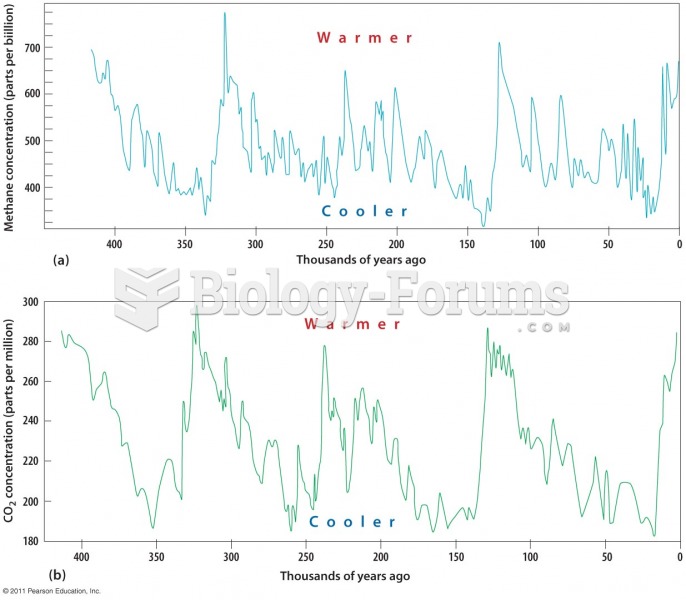|
|
|
If you could remove all of your skin, it would weigh up to 5 pounds.
Despite claims by manufacturers, the supplement known as Ginkgo biloba was shown in a study of more than 3,000 participants to be ineffective in reducing development of dementia and Alzheimer’s disease in older people.
It is important to read food labels and choose foods with low cholesterol and saturated trans fat. You should limit saturated fat to no higher than 6% of daily calories.
Barbituric acid, the base material of barbiturates, was first synthesized in 1863 by Adolph von Bayer. His company later went on to synthesize aspirin for the first time, and Bayer aspirin is still a popular brand today.
Increased intake of vitamin D has been shown to reduce fractures up to 25% in older people.
 Apply deep circular friction with the fingertips to the erector muscles on the right side, moving ...
Apply deep circular friction with the fingertips to the erector muscles on the right side, moving ...
 Rhythmic compression to gluteal muscles using the fist. Press into the large gluteal muscles moving ...
Rhythmic compression to gluteal muscles using the fist. Press into the large gluteal muscles moving ...





